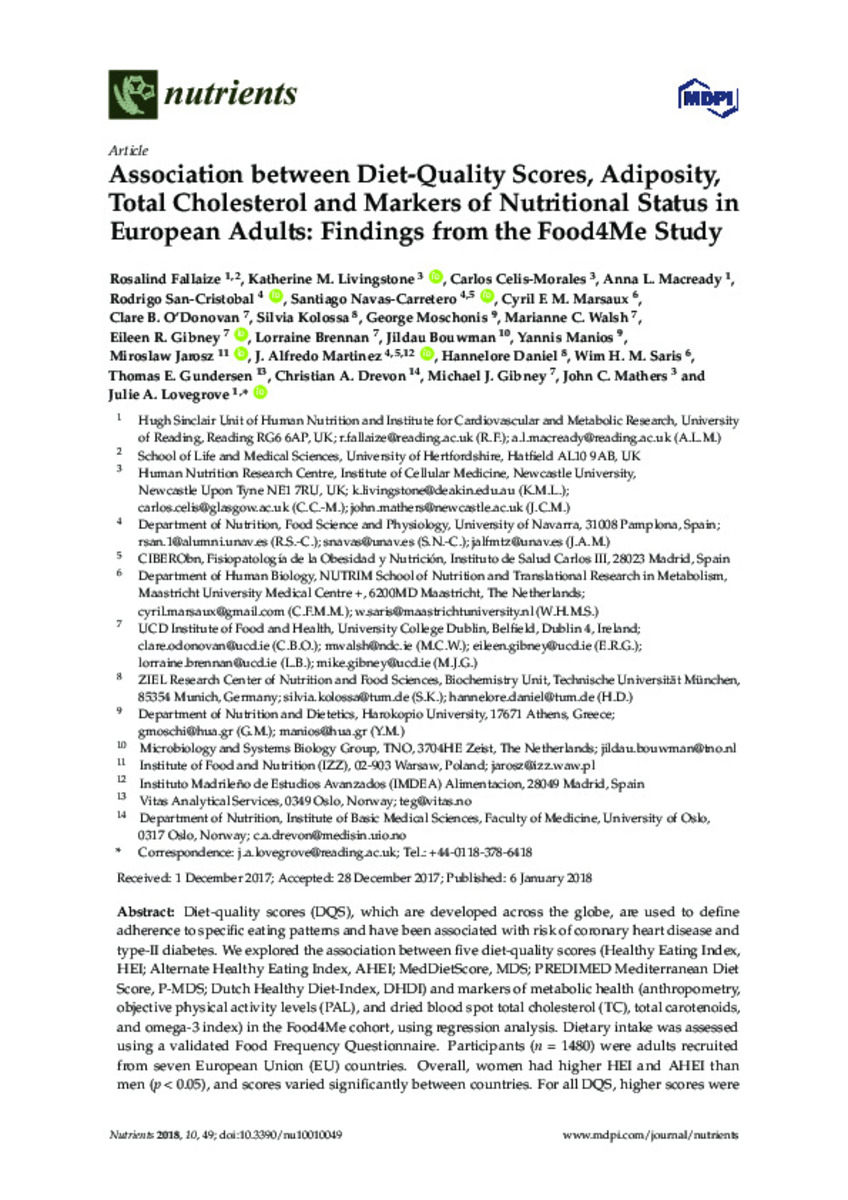Association between diet-quality scores, adiposity, total cholesterol and markers of nutritional status in European adults: findings from the Food4Me study
Palabras clave :
Diet scores
Metabolic health
Personalized nutrition
Healthy Eating Index
Mediterranean Diet Score
Dutch Healthy Diet Index
Nutritional biomarkers
Dried blood spots
Fecha de publicación :
2018
Nota:
This article is an open access
article distributed under the terms and conditions of the Creative Commons Attribution
(CC BY) license (http://creativecommons.org/licenses/by/4.0/).
Cita:
Fallaize, R. (Rosalind); Livingstone, K.M. (Katherine M.); Celis-Morales, C. (Carlos); et al. "Association between diet-quality scores, adiposity, total cholesterol and markers of nutritional status in European adults: findings from the Food4Me study". Nutrients. 10 (1), 2018, 49
Aparece en las colecciones:
Estadísticas e impacto
0 citas en

0 citas en

Los ítems de Dadun están protegidos por copyright, con todos los derechos reservados, a menos que se indique lo contrario.








